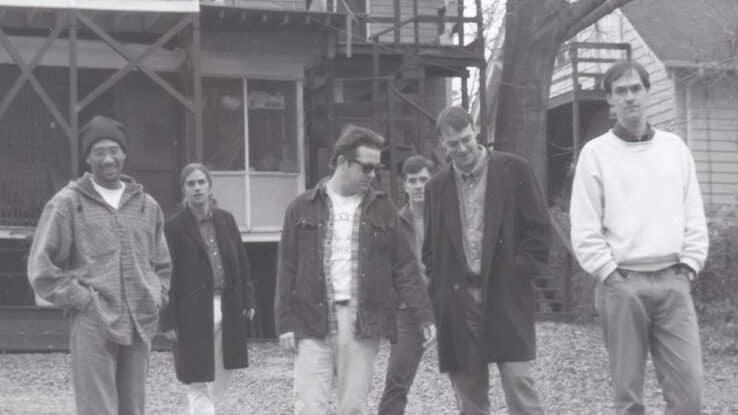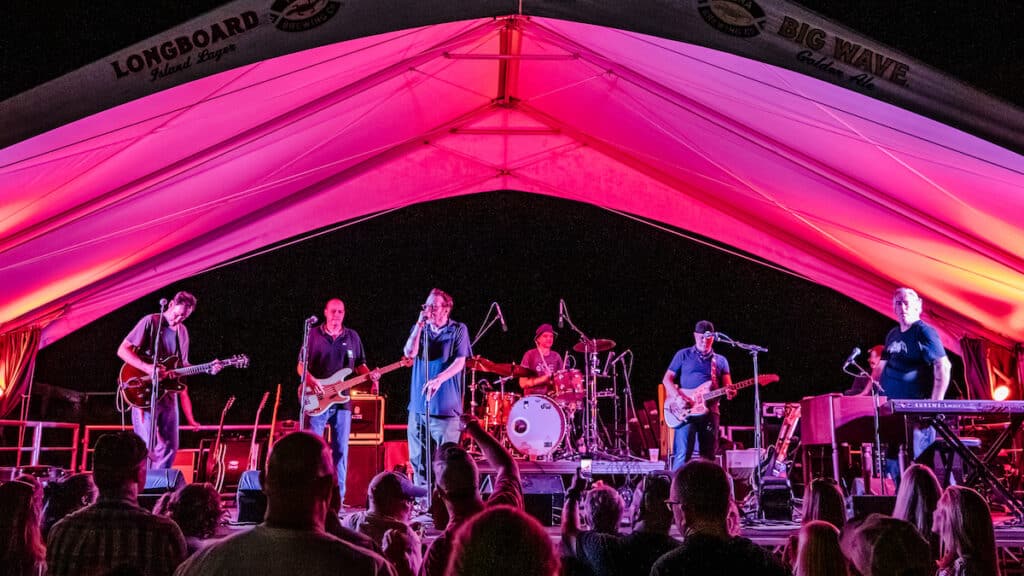Interview

Interview
Mike Connell of The Connells on the story behind ’74-75’
The Connells songwriter and guitarist on the creation and success of their 1995 smash hit
Back in 1993, The Connells were mostly an unknown band outside of the US. They’d had college radio hits with the cracking Celtic-themed ‘Scotty’s Lament’ and ‘Stone Cold Yesterday’, but outside of their home country, the impact was minimal. That was until ’74-75’ happened.
It all began in the early days of 1991. The Connells (who included singer Doug MacMillan, Mike Connell on guitar, Mike’s brother David on bass, George Huntley on guitar, Steve Potak on keys and drummer Peele Wimberley) were in a kind of limbo, brought about by a dispute with their label, TVT Records.
“The initial contract that we had signed wasn’t necessarily the best for us,” Mike Connell tells us over a Zoom call from his law practice in Raleigh, North Carolina. “It’s standard for a band with no leverage that the record company can pretty much negotiate the terms of the contract. We did try to jump ship from TVT, unsuccessfully, but that process took a lot of time.”
It meant a gap of three years between the band’s last record – 1990’s One Simple Word – and being in a position to start work on the next. The silver lining to that was more time to prep the next batch of songs than they were accustomed to. One of those songs was a gentle acoustic number called ’74-75’.
“There are plenty of songs that I’ve no recollection of writing, but I remember that one,” Connell says. That morning in 1991, he got up, sat on the sofa with his acoustic guitar and played an A minor chord, expanding it into the little run that would become the song’s immediately recognisable intro. “The intro sort of presented itself,” he says, “I had a little tape recorder. And if there were any ideas that showed some promise, I’d put them down.”
There’s no shortage of musicians who’ll claim that hit songs dropped into their laps, flooding out fully formed in the space of minutes. That wasn’t the case for Connell: “It took a good while with that song and I felt a little more proprietary, I think because there was something about it. And, for me, writing lyrics is like pulling teeth. It’s just not my idea of fun. You know, my goal is to come up with something that’s not too sentimental or syrupy or trite or overused. That can be a struggle.”
Thematically, ’74-75’ is somewhat elusive, conjuring a sense of deep regret more than a specific narrative. Even Mike Connell seems to struggle to pinpoint exactly what he was feeling when he wrote it. “I can tell you what was not going through my head,” he says, “which was that the numbers 74 and 75 were not intended to signify the years 1974 and 1975. That’s the angle that Mark Pellington took when he made the video. I was initially sort of horrified and then so happy to be proved wrong. His instincts were spot on.”
Writing about the song in The Guardian, music writer Michael Hann said: “Who hasn’t, years later, dreamed of someone from their distant past, but been unable to comprehend that the object of their dreams is someone else now? Who hasn’t, years later, wondered how different life might have been… if all the opportunities had been taken and not missed. Maybe it’s not reason that sets us apart from the animals; maybe it’s regret.”
When I recount this passage to Connell, he seems almost taken aback. “Oh wow,” he says, “That is so much better than any way that I’ve ever attempted to explain the song. I love that. That is precisely what I had in mind. I wish I’d said it. The idea was that things have gone from point A to point B, some line had been crossed and there’s no going back. You know, once you’ve gone from 74 to 75, you can’t get back to 74.”
Ring was finished in March 1993 and came out the following September. The label plumped for two uptempo rockers as the first singles, ‘Slackjawed’ and ‘New Boy’. Nobody seemed to see much promise in a gentle ballad. “Grunge was dominating the airwaves,” Connell says, “So nobody would have thought the song could do well on the radio.”
The first signs that the song had potential came from outside the band. It wasn’t even out in the world yet when Mark Pellington – who had directed videos for U2, Pearl Jam and Alice In Chains and would go on to make the films Arlington Road and The Mothman Prophecies – got in touch.
“Mark was an old friend of the band,” Connell says, “so our manager sent him an advance copy of the album. He called me and said, ‘You gotta let me make a video for ’74-75’’. I said, ‘The label’s not going to release this as a single, I don’t see any way that they would pay for you to come to Raleigh to make a video. But once it got to the label that Mark wanted to make a video, that changed their thinking.”
A second outside influence came from a less obvious source. A subsidiary of EMI based in Stuttgart heard Ring and petitioned TVT head Steve Gottlieb to let them license the record for release in Germany. It was an inspired move. They re-released Ring in 1995 and, from Germany, ’74-75’ spread across Europe rapidly, hitting the Top 10 in 11 counties, going to No.1 in Sweden and Norway. It reached No.6 in Ireland and peaked at No.14 in the UK.
When I ask Connell if he’s got any theories as to why ’74-75’ went relatively unnoticed in the US but was such a huge hit in Europe, he shrugs. “I’m not dismayed that it didn’t do anything to speak of in the US, it’s more than I still can’t wrap my head around that it did as well as it did in Europe. Nothing had prepared us for that. How unbelievably lucky are we that it did?”

By the time all this was happening in Europe, The Connells had already moved onto their next record, Weird Food And Devastation. “The thinking going into that record was, let’s try to just change things up,” Connell says. “Let’s try to do something other than what we’ve been doing for the last five albums.” The timing of that about face inadvertently left the band unable to capitalise on the opportunity presented to them.
When asked if he has any regrets, Connell is pragmatic. “I regret that we didn’t deliver a better batch of songs. Beyond that, on a more personal level, there were things going on in my life and I was kind of in a darker place, which I think is reflected to some extent in the songs. But beyond that? No, it was just part of the evolution of the band.”
I hesitantly raise the dreaded “one-hit wonder” tag and Connell laughs. “I absolutely own the fact that we’re one hit wonders in Europe. The label fits, you know? I just feel incredibly fortunate that we did have that moment, that one song. We toured Europe, following where the song went. We played the Olympia Theatre in Dublin, which was just a magical experience. We would get in a cab, the radio would be going and you’d hear the song, and then you get to your hotel room turn on the television and the video would be on. We were just pinching ourselves.”
Get the 30th anniversary deluxe edition of Ring, out now on Craft Recordings









